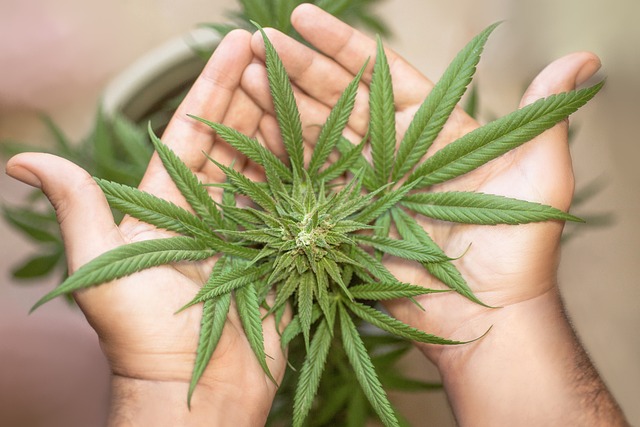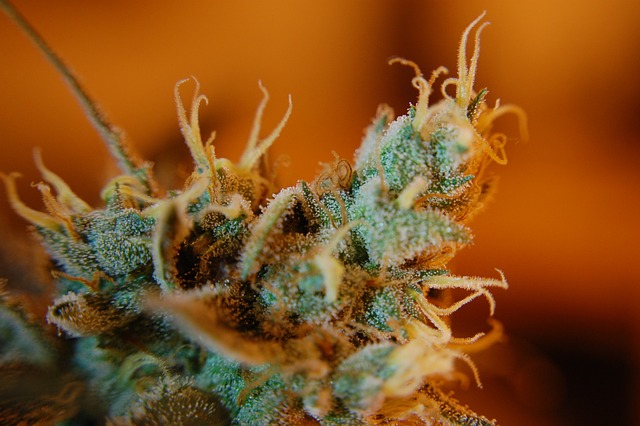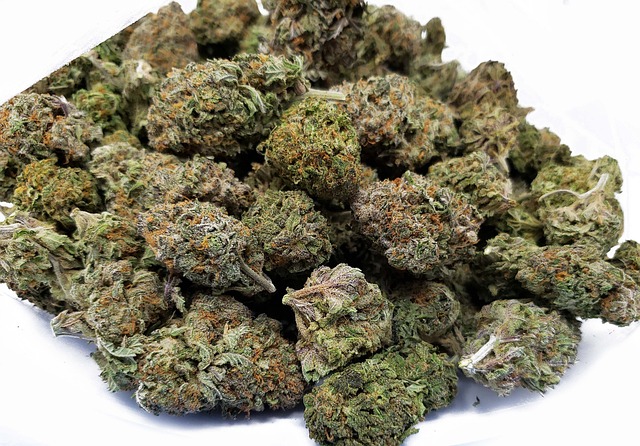THCA, a non-psychoactive cannabinoid found in cannabis plants, has become a notable alternative for health and wellness due to its potential benefits without the mind-altering effects of its decarboxylated forms. With the passage of the 2018 Farm Bill and state-specific legislation like Iowa's legalization, THCA flower has gained popularity. It offers versatile consumption methods, including smoking, vaporizing, and infusion into edibles, catering to diverse consumer preferences. Iowa's legal framework has highlighted the therapeutic potential of THCA, with claims supporting its anti-inflammatory, pain-relieving, and neuroprotective properties, making it an interesting option for those seeking alternative health solutions. As accessibility expands and research progresses, demand for THCA flower is projected to rise, reflecting a significant shift in cannabis consumption trends. It's crucial for consumers to understand the differences between THCA, Delta-8 THC, and Delta-9 THC, especially considering the varying legal status of these compounds across different states, with THCA being a legal option in Iowa under current federal and state regulations. Users must navigate this evolving landscape carefully to make informed choices about their cannabinoid consumption.
Explore the intricacies and burgeoning interest in THCA flower, a non-psychoactive cannabinoid gaining prominence post-legalization. This article delves into its unique attributes, distinguishing it from Delta-9 THC and Delta-8 THC, and clarifies the legal landscape of THCA in Iowa—essential knowledge for consumers and cultivators alike. We’ll guide you through the differences between THCA flower and other cannabis products, uncover its potential medicinal properties, and explore how it’s transforming the wellness sector. Aspiring growers in Iowa will find a comprehensive cultivation guide tailored to their climate. Additionally, we’ll discuss safe consumption methods, the entourage effect with other compounds, proper storage to maintain freshness, and the impact of terpenes on THCA’s effects. Navigating the market for quality THCA flower, understanding dosage and effects, and addressing safety concerns are also key topics covered in this insightful piece. Join us as we examine the role of THCA flower in Iowa’s emerging cannabis industry and what the future may hold for this innovative product.
- THCA Flower and Its Rising Popularity Post-Legalization
- Understanding Delta-9 THC vs. Delta-8 THC vs. THCA: A Chemical Breakdown
THCA Flower and Its Rising Popularity Post-Legalization

The non-psychoactive cannabinoid THCA, or tetrahydrocannabinolic acid, has garnered significant attention in the realm of cannabis products, particularly as legislation evolves and more states, like Iowa, make it legal for various uses. THCA flower, which contains the raw, acidic form of THC, is emerging as a popular choice among consumers seeking the potential wellness benefits without the psychoactive effects that come with its decarboxylated counterpart. This rise in popularity is partly due to the increasing availability of hemp-derived products following the 2018 Farm Bill, which legalized hemp and its derivatives, as long as they contain less than 0.3% THC, across the United States. In Iowa, where THCA products are legal, enthusiasts appreciate the flower for its versatility, as it can be smoked, vaporized, or infused into edibles, offering a range of consumption methods that cater to diverse preferences and needs. The therapeutic properties attributed to THCA include anti-inflammatory, pain-relieving, and potential neuroprotective effects, making it a subject of interest for individuals exploring alternative health options. As legal barriers continue to fall and research progresses, the demand for THCA flower is likely to persist and even expand, reflecting the evolving landscape of cannabis consumption and the ongoing pursuit of its beneficial properties.
Understanding Delta-9 THC vs. Delta-8 THC vs. THCA: A Chemical Breakdown

Delta-9 tetrahydrocannabinolic acid (THCA) and its psychoactive counterparts, Delta-8 THC and Delta-9 THC, are the primary cannabinoids found in cannabis sativa that elicit distinct effects when consumed. THCA is the raw, non-psychoactive form of THC that is present in raw cannabis plants and can convert to Delta-8 or Delta-9 THC when exposed to heat or light during decarboxylation, a process that occurs when cannabis is smoked or vaporized.
Delta-8 THC is known for its milder psychoactive effects compared to its more potent cousin, Delta-9 THC. Both compounds bind to the body’s endocannabinoid system but differ in their efficacy and potency. Delta-8 provides a subtle high with potential therapeutic benefits without the intense psychoactivity associated with Delta-9. As for legalities, THCA itself is not specifically scheduled under federal law, which means products that contain THCA are more navigable legally than those containing Delta-8 or Delta-9 in states where cannabis remains prohibited. For instance, in Iowa, THCA products may be considered legal due to the lack of explicit federal scheduling, but it’s important for consumers to stay informed about the evolving legal landscape surrounding all forms of THC. This distinction is crucial for individuals looking to engage with cannabinoids, as each compound offers a unique experience and comes with its own regulatory considerations. Understanding these nuances is essential for anyone interested in exploring the benefits and effects of cannabis compounds responsibly.
Following a comprehensive exploration of the intricacies surrounding THCA flower, its burgeoning popularity post-legalization, particularly as noted in states like Iowa where THCA is legally permissible, and a detailed chemical analysis contrasting THCA with its psychoactive counterparts Delta-9 THC and Delta-8 THC, it’s clear that this non-psychoactive cannabinoid is carving out a significant niche within the hemp-derived products market. The potential therapeutic benefits of THCA, coupled with its legality in certain jurisdictions, present an exciting frontier for researchers and consumers alike. As the legal landscape continues to evolve, the role of THCA flower is set to expand, offering novel wellness solutions to those seeking alternative cannabinoid experiences.
